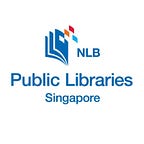You Are What You Do Again: Unlocking Habits for Success
What do you usually do right after you wake up? Whether you groggily reach for your phone or stumble to the washroom, the action you take is likely one of your habits.
A habit is the tendency to carry out a particular action and it can be both positive or negative. Essentially, habits are the small decisions you make and actions you perform daily. According to researchers from Duke University, approximately 40% of daily behaviours are driven by them.
With habits playing such a significant role in daily life, it is important to be more aware of how they work and how you can cultivate them.
Habits, of course, do not just happen. In Atomic Habits, author James Clear outlines how habits are linked to the reward system in our brains. A cue triggers a craving, which motivates a response that provides the reward and satisfies the craving. This reward then becomes associated with the cue, forming a habit loop.
One popular school of thought suggests that it takes 21 days for a habit to form. However, a psychological study posits that it takes longer than that. It states that new habits start to be considered routine after approximately 66 days of consistent daily practice, and within 10 weeks, you’ll find that you are doing the action automatically without even having to think about it.
While it may feel difficult at first, the small actions you take add up over time and can become the habits that aid your personal growth and help you achieve your long-term goals.
Here are some recommended books to help you form better habits:
1. Atomic Habits by James Clear
James Clear’s title is one of the first few recommendations to anyone who wants to understand the power of tiny habits. It teaches you what atomic habits are and how instrumental they are in helping you to form your identity through three key changes — outcome change, process change and identity change.
The book centres on the theme of how a small daily change can bring about significant shifts in your lifestyle. It is filled with anecdotes from CEOs and scientists who have improved their lives with the power of atomic habits.
Get the book here: Physical Book, eBook, Audiobook
2. The 7 Habits of Highly Effective People by Stephen R. Covey
The 7 Habits of Highly Effective People champions an approach centred on principles for both personal and interpersonal efficacy. It presents a holistic approach to success, emphasising the importance of character, integrity, and principles in achieving effectiveness and fulfillment.
The first three habits focus on personal mastery and self-improvement while the next three habits centres around interpersonal relationships and collaboration. The final habit, “Sharpen the Saw,” emphasises the continuous renewal and self-improvement necessary for long-term success.
Ultimately, the book encourages readers to focus on physical, mental, social, and spiritual well-being to maintain balance and sustain personal effectiveness.
Get the book here: Physical Book, eBook, Audiobook
3. Breaking the Habit of Being Yourself: How to Lose Your Mind and Create a New One by Dr Joe Dispenza
Dr Joe Dispenza explores the concept of neuroplasticity and the ability of individuals to rewire their brains and create new patterns of thinking and behavior. Drawing on scientific research and personal anecdotes, Dr Dispenza explains how our thoughts, emotions, and beliefs shape our reality and offers practical techniques to break free from negative habits and create meaningful change in our lives.
The book also delves into the power of meditation and visualisation as tools for transformation, guiding readers through step-by-step processes to reprogram their minds and manifest their desired outcomes.
Get the book here: eBook
While you may identify the need to form new habits, it is equally important to take a step back to critically examine your life as it is now. Pause and consider your daily routine — what are the things you would like to change, and your motivations behind them? Instead of attempting to make sweeping changes, try to establish habits that align with your long-term goals. Be consistent and in time, the difficult actions today will be your new habits.
